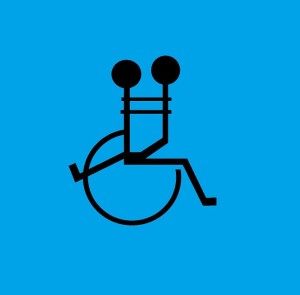Being an able-bodied person within our culture comes with a lot of privilege. We think of providing access ramps and designated disabled access washrooms as assurance that society is fair and objective. Until you actually listen to another student’s lived-in experience of accessing public postsecondary, you don’t realize how different it can be for them. We are only scratching the surface of addressing ableism.
A good working definition of ableism is discrimination in favour of able-bodied people. I like this definition because it places emphasis on those that perpetuate ableism to show that they aren’t being prejudiced or discriminatory.

Persons with disabilities (PWD) encounter not just physical barriers, but also socio-cultural ones as well. For example, the responsibility of accessing support requires rigorous testing from specialist doctors willing to vouch for you. You may need to experience periods of recovery, making it impossible to prolong your studies or employment.
Despite making strides to create more inclusive spaces on campus, such as facilitating groups like Camosun for Social Justice, the one shortcoming of anyone coming into the Students with (dis)Abilities director role is addressing their own internalized ableism. Often we demand that others demonstrate their need for accommodation but don’t address the ways we propagate oppression subtly or overtly.
We continue to benefit by having non-able-bodied people out of the workforce (it allows Statistics Canada to report a lower unemployment rate while creating an industry built around managing non-able-bodied people) or by having them pursue further postsecondary education. It justifies our dominant roles in further tokenizing disabilities under the guise of supporting the proletariat class.
